Winter Snow Drive in the Porsche 911 Carrera 4 GTS (991 Early Model)
公開日:
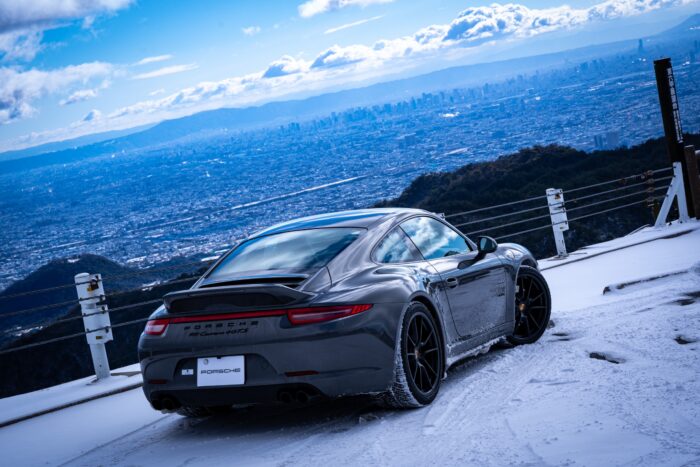
コンテンツ
Winter Porsche: The Carrera 4 GTS
March has arrived, bringing warmer temperatures and pleasant sunny days.
Our early 991 Carrera 4 GTS has been with us for about a year and a half. It’s running superbly, with a sharp engine response and an exhaust note that seems to be getting even louder and more thrilling.
Originally, I wanted to own an all-wheel-drive Carrera, so I chose the Carrera 4 GTS. Since I wanted to drive it freely even in the off-season winter months, I went as far as getting Porsche-approved winter tires. In other words, this is our winter Porsche.
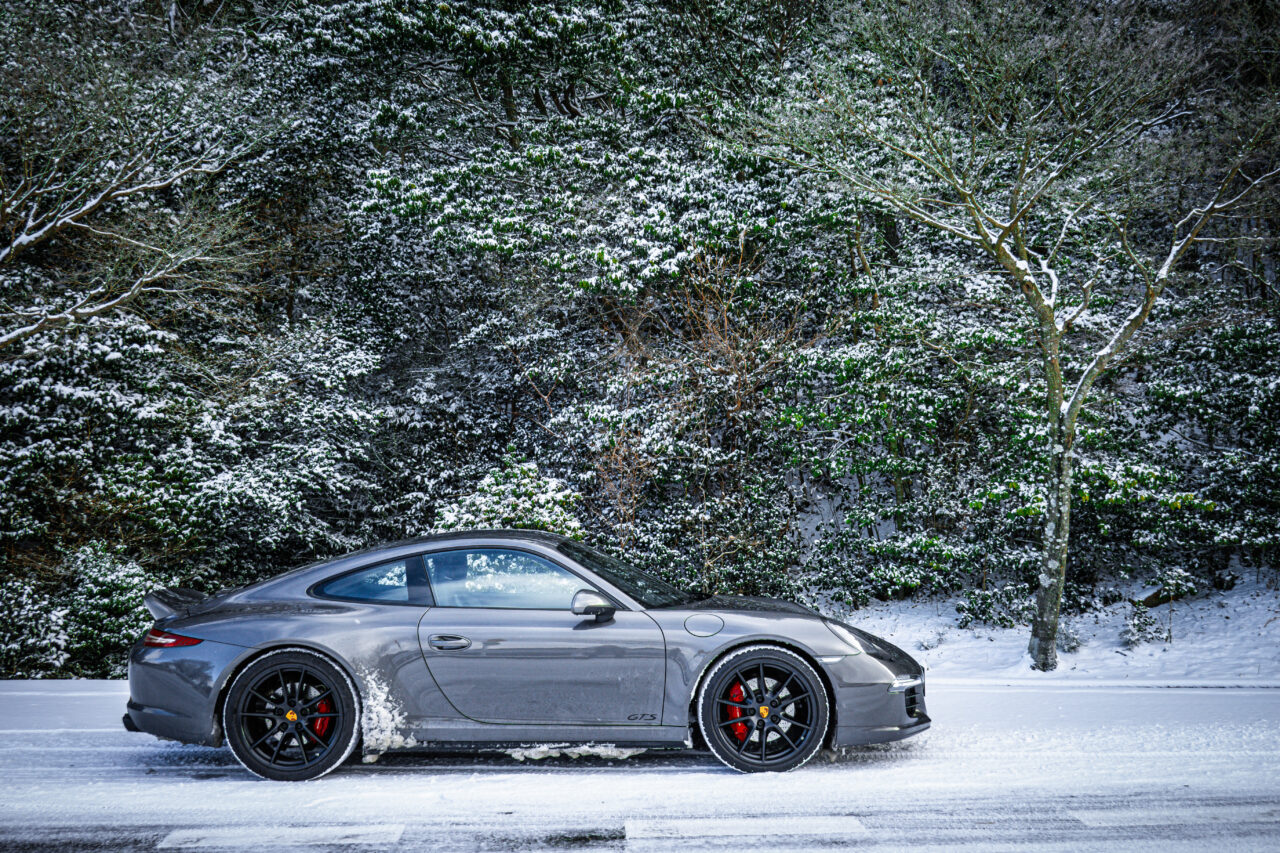
That said, from the end of last year into this year, I was quite busy and didn’t get to go on many long tours. However, I’d like to share a digest of some short winter drives and snow road experiences.
Winter Trip from Wakayama to Mie
Tamakijinja Shrine
At the end of the year, I found some free time and headed to Wakayama.
The destination this time was the famous power spot, Tamakijinja Shrine. This shrine is located deep in the Kii Mountains and is said to be a place “only those who are called can visit.” It is also known as the inner sanctuary of the Kumano Sanzan.
I have visited several times before, but because the atmosphere there is so unique, I try not to go lightly. This time, I had something I wanted a little extra power for, so I paid my respects.
After passing through Osaka city, I headed to Gojō City in Nara Prefecture, then onto Route 168. Although there was no snow, the temperature was low—around 3°C in late December. The great thing about European winter tires is that they inspire no anxiety even on dry roads.
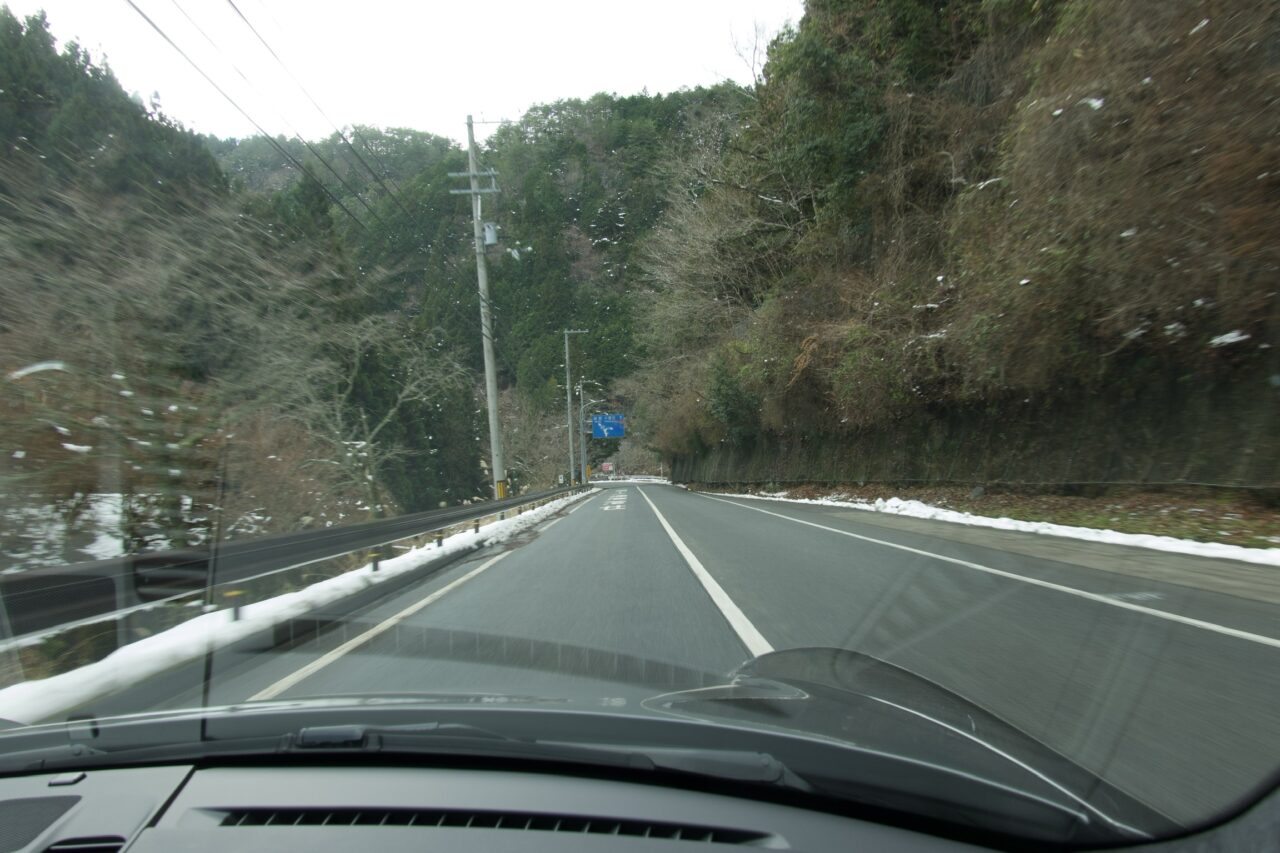
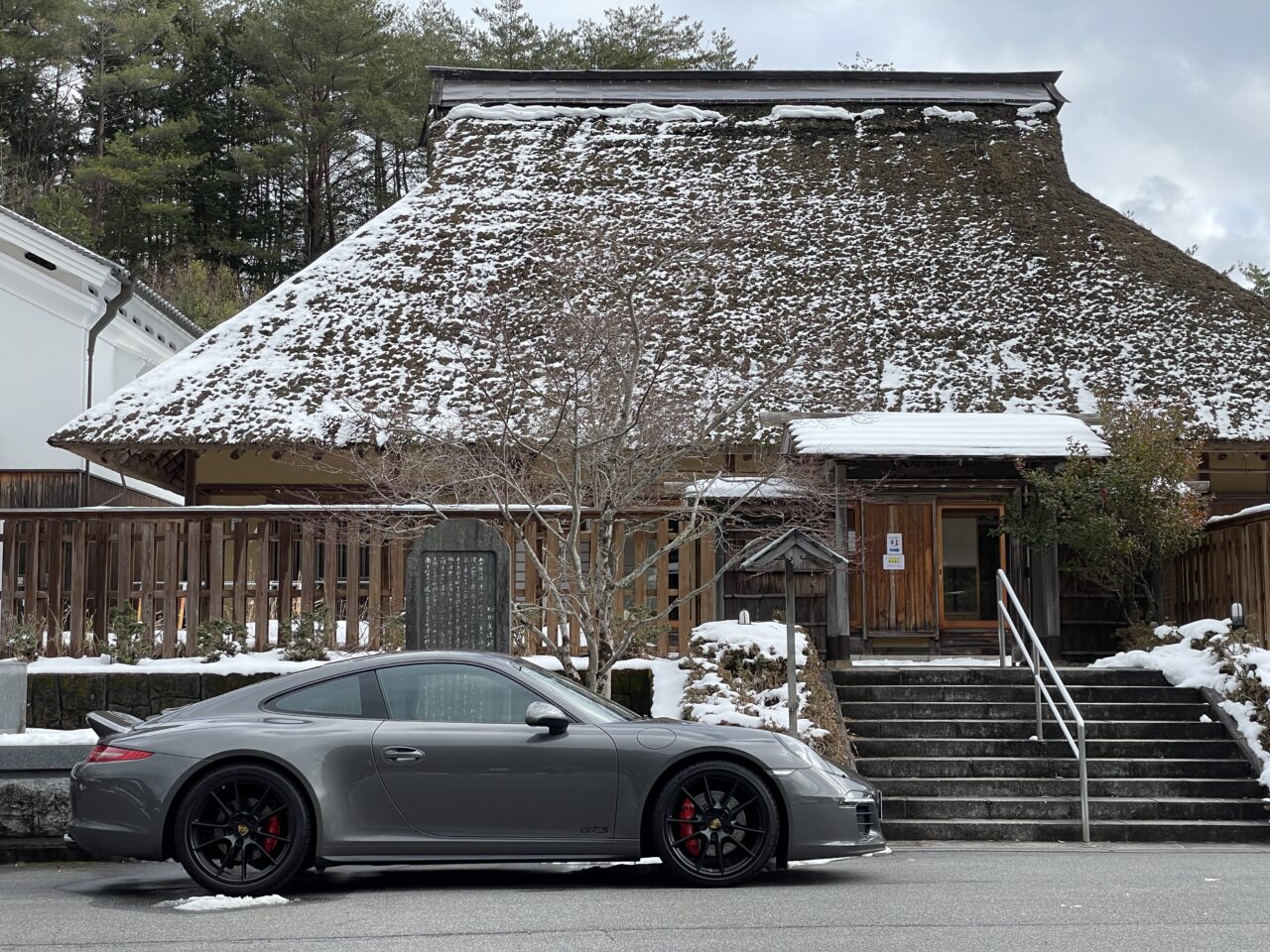
Partway through, I turned left off Route 168 to cross the Totsukawa River and climbed a mountain road about 1.5 lanes wide. It’s not quite a narrow, hard-to-drive road, but you need to be careful when passing other vehicles on the steep slopes. As I approached the summit, snow began to appear on the road. I had already checked road conditions and knew there was snow and a winter tire regulation, so I wasn’t worried and continued climbing in elevation.
Near Tamakijinja Shrine, the snowfall suddenly increased. It had been a while since I drove on snow, but the Carrera 4 GTS conquered the snowy roads with surprising ease. Even in situations where a rear-engine, rear-wheel-drive car might struggle for traction, the all-wheel-drive system gave me plenty of confidence.
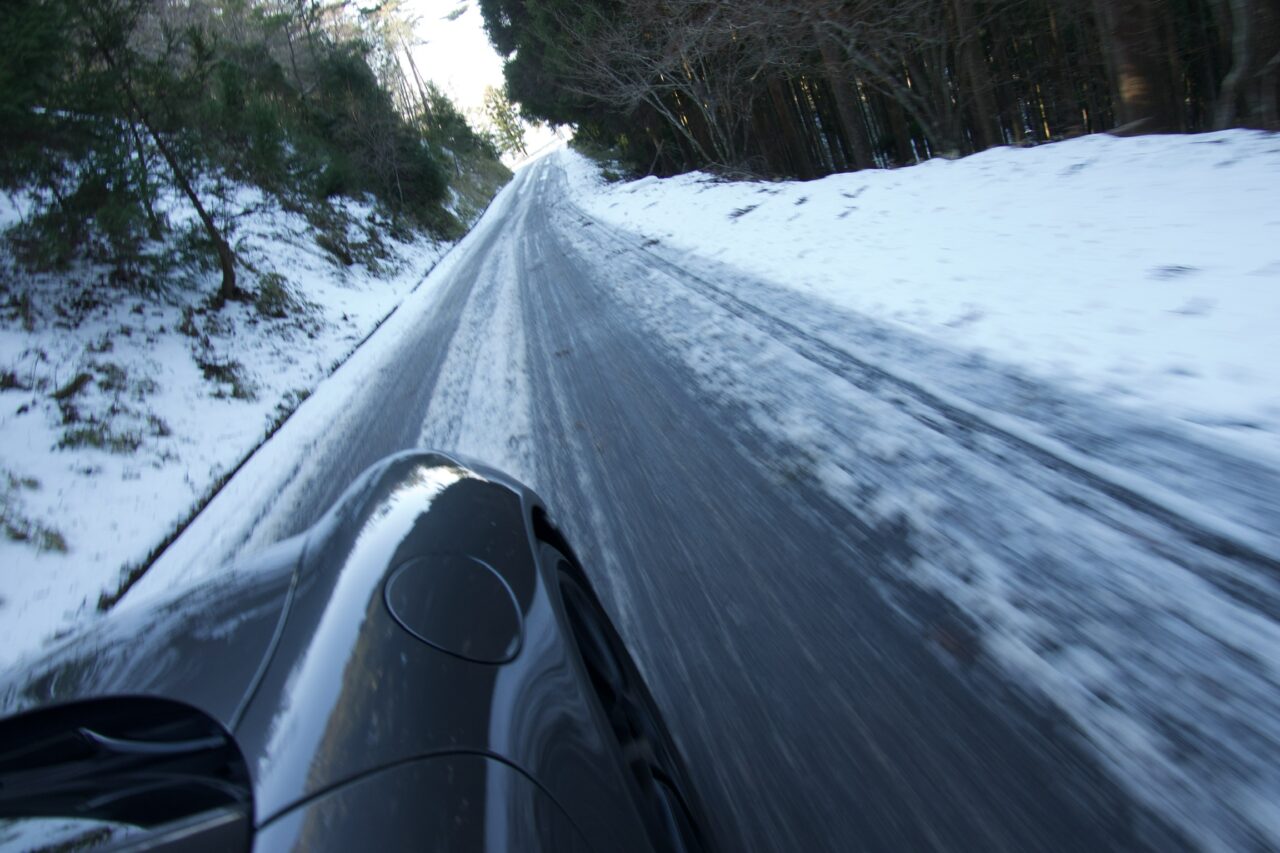
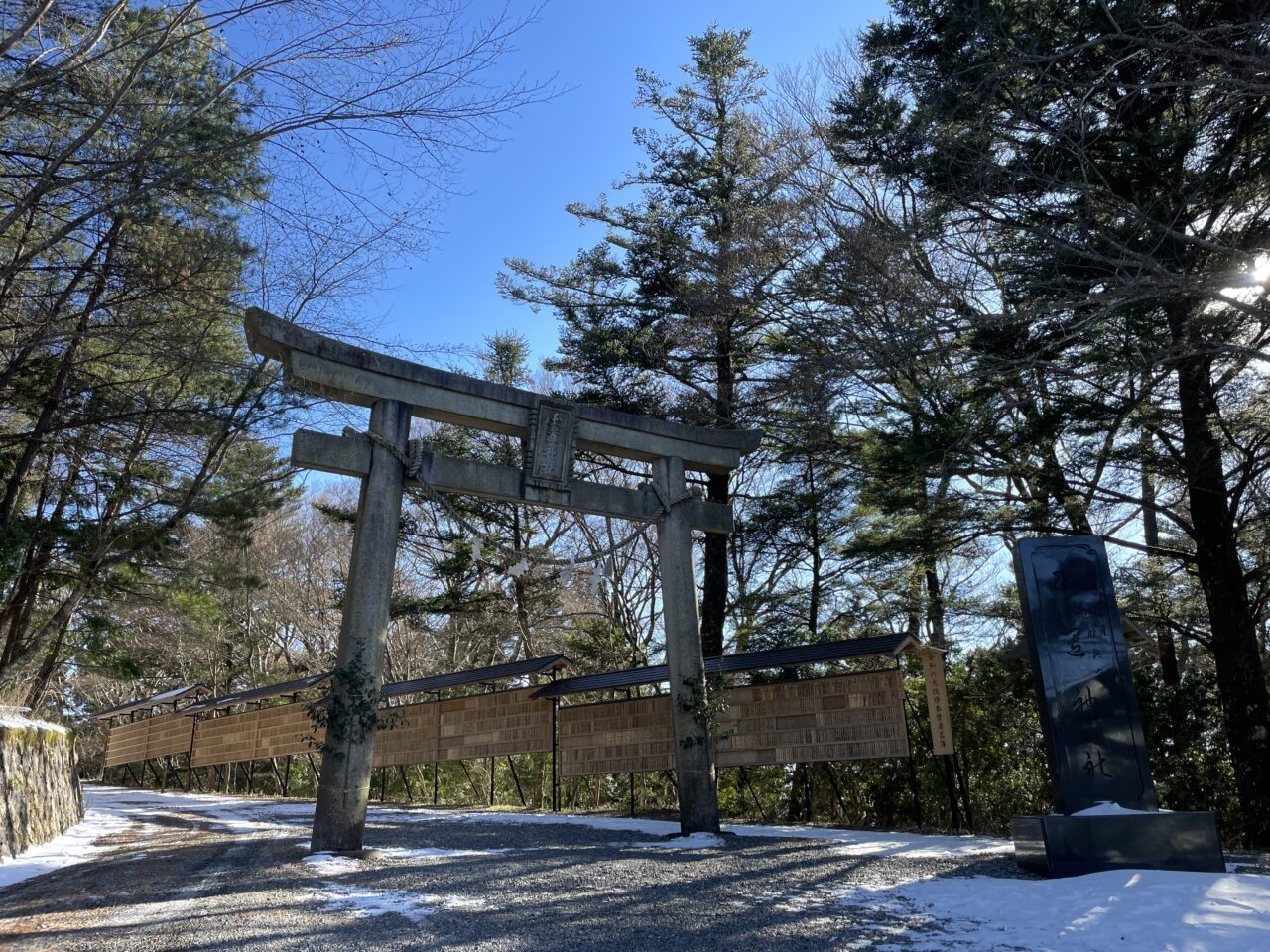
After enjoying the snowy roads for a while, I arrived at the shrine’s parking lot. From there, it’s a 10-15 minute walk up the mountain to the main hall. As I got closer, the atmosphere changed. Previously, the air was tense and sharp, but this day it was surprisingly soft and gentle. Despite the cold temperature, the air felt warm and very calming.
After the visit, I descended and returned to Route 168, heading further south.
I enjoyed the lightly trafficked Route 168 and arrived in Shingū City, where I stayed overnight.
From Onigajō to Mie
The next morning, I enjoyed a spirited drive on Prefectural Route 141 (Orange Road). Even at year-end, the southern tip of the Kii Peninsula was warm. I sped along in Sport mode under spring-like sunshine.
Along the way, I stopped at Onigajō, a spot recommended by a friend. I had no prior knowledge but was overwhelmed by the stunning natural scenery. If you’re nearby, it’s definitely worth a visit.
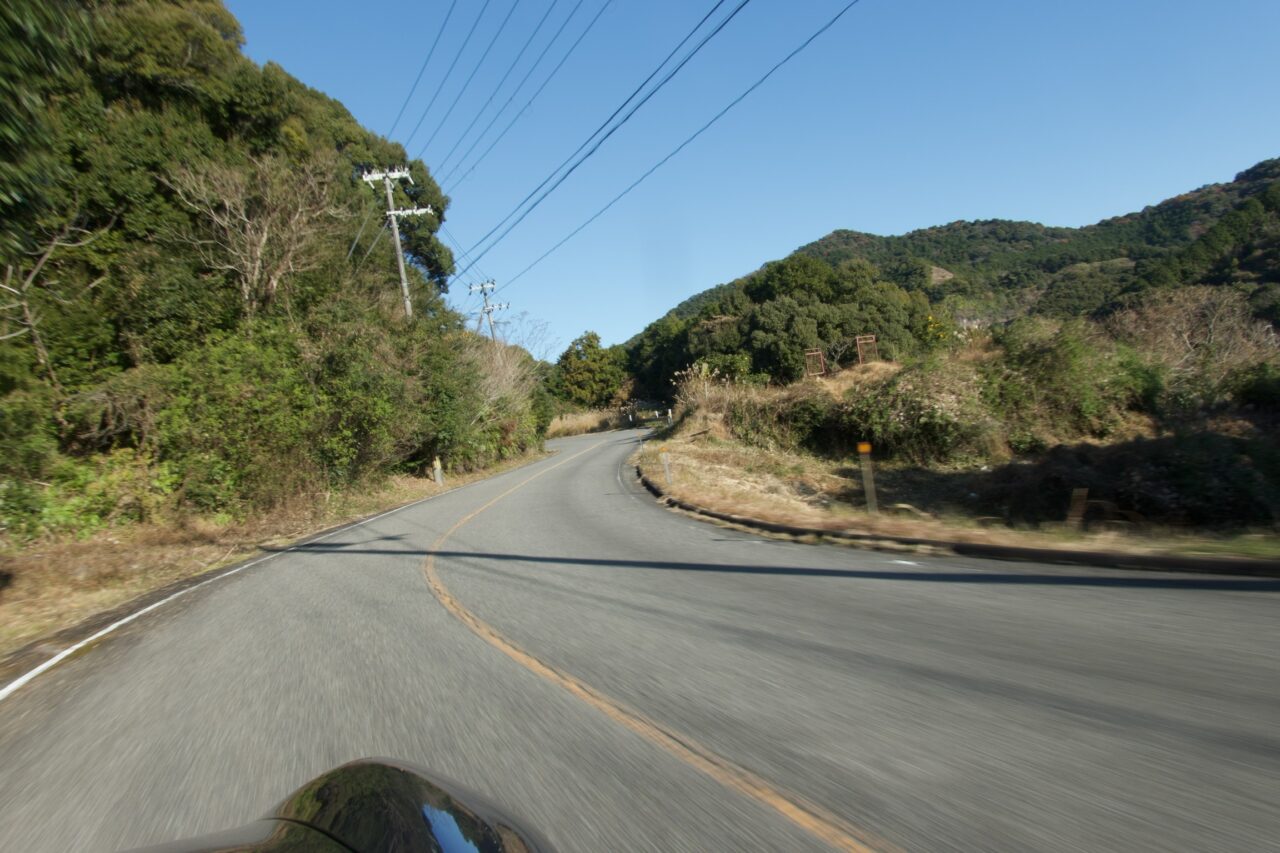
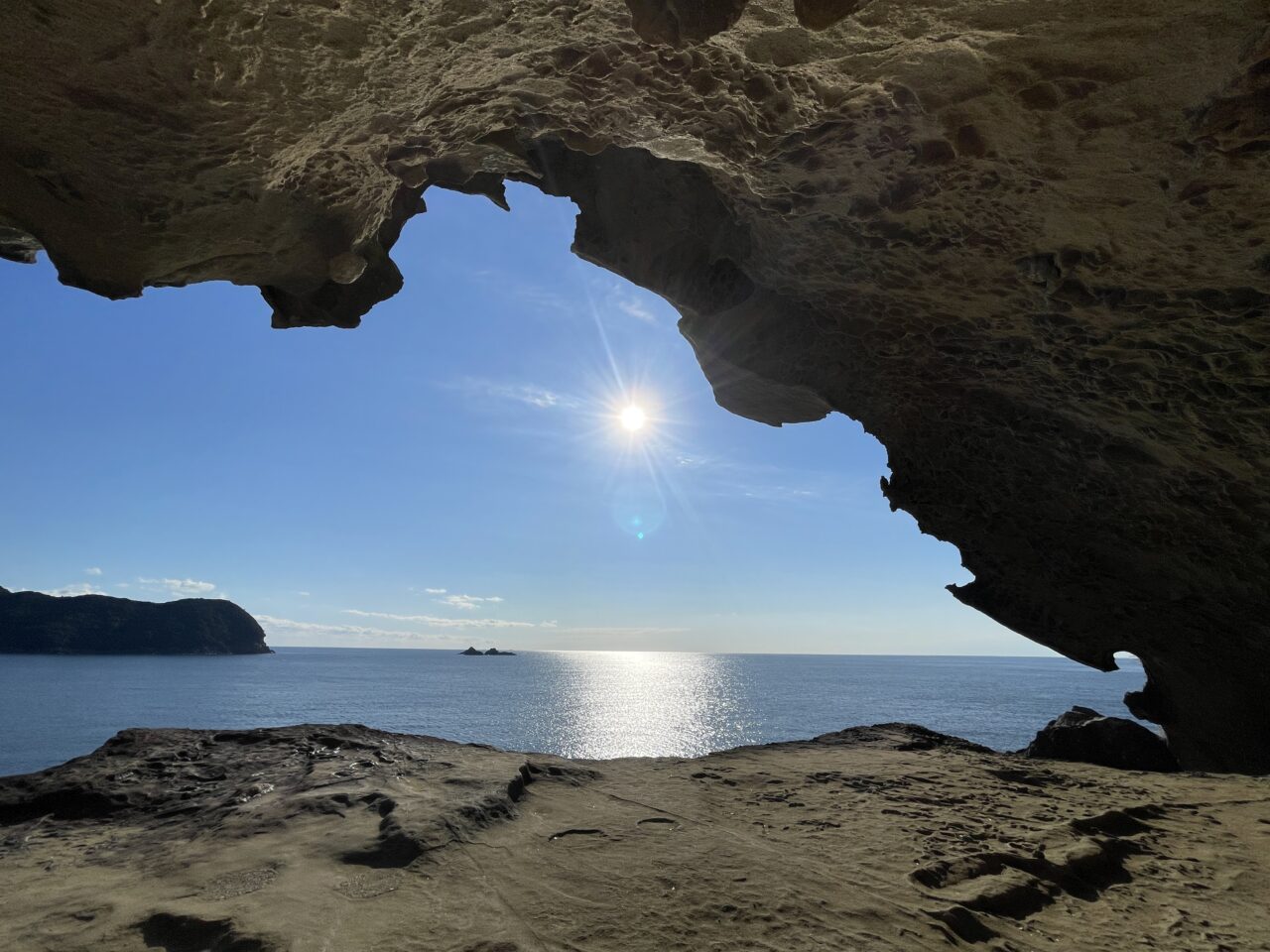
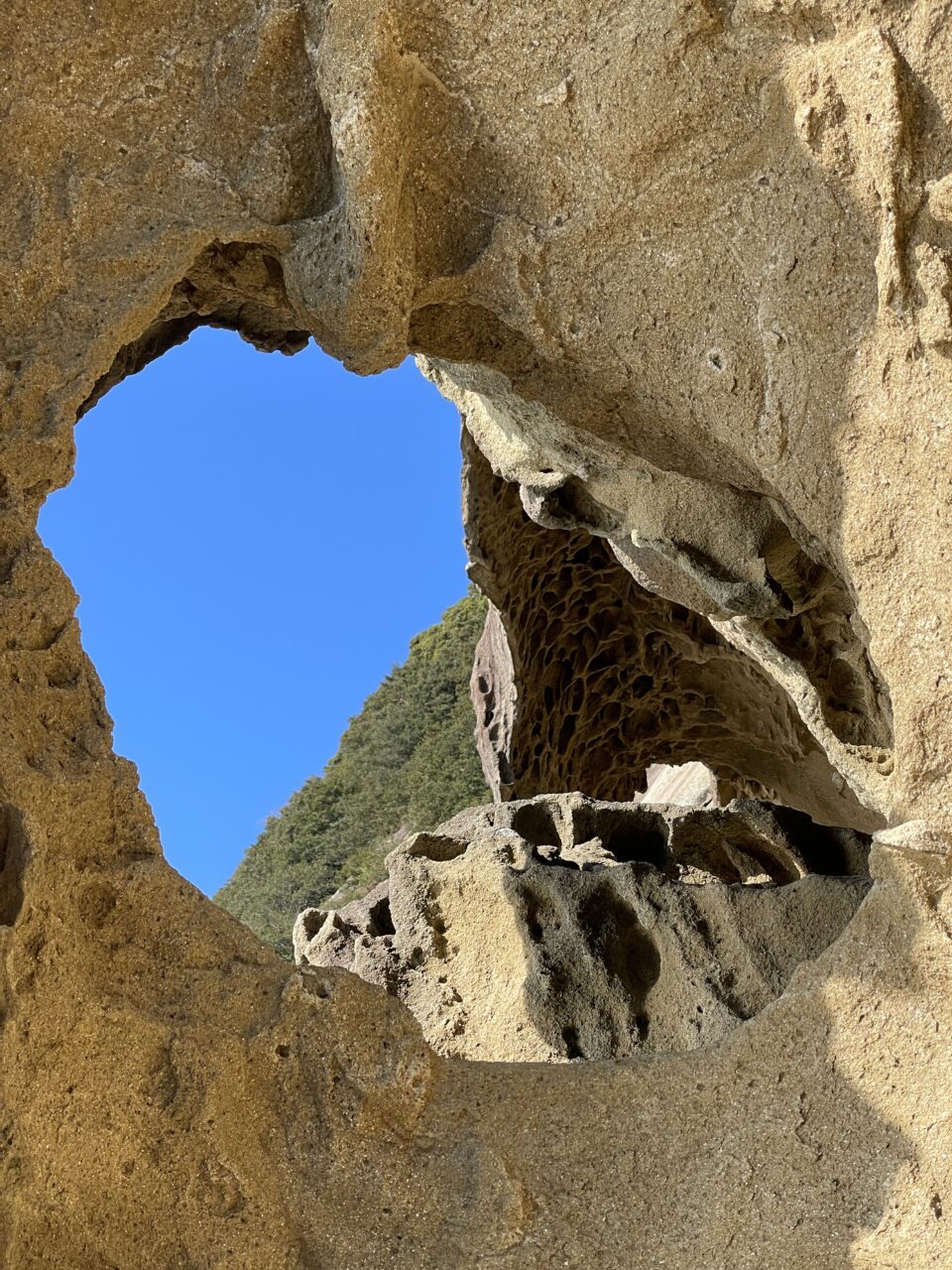
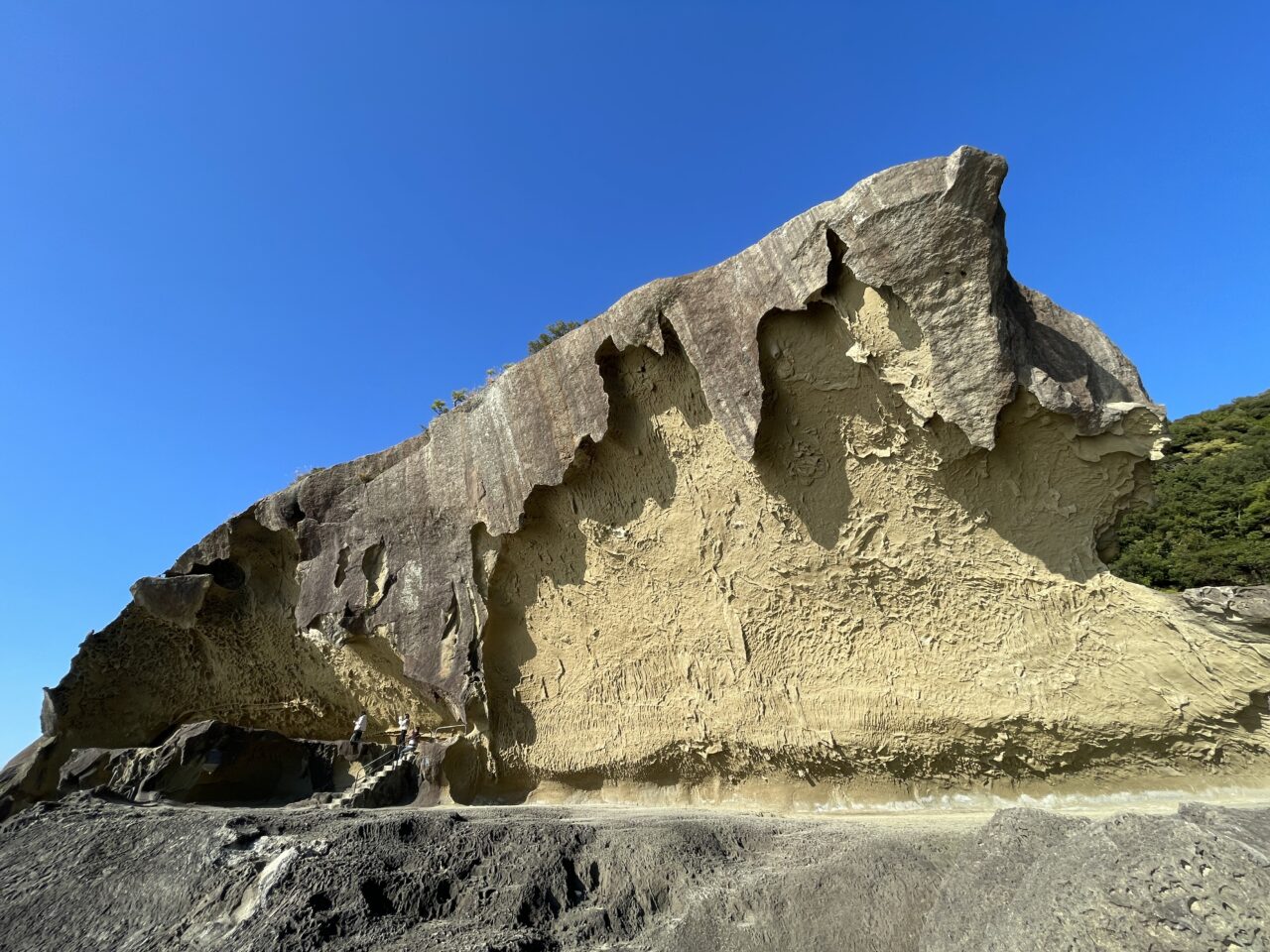
After leaving Onigajō, I headed north on Route 169. This route has become much easier to drive compared to the past. It’s a great road for touring, and if you’re traveling north-south across the Kii Peninsula, starting with Route 169 and Route 168 is a good plan.
Near Yoshino Town, I turned right and drove the famous Route 166 with the 911. It had been a while since I last drove this road, but it remains one of my favorite national routes. Due to the recent cold snap at year-end, traffic was light and patches of snow remained near the mountain passes. I used the paddles in Sport mode to power up the climbs, repeatedly downshifting for no real reason just to enjoy the engine’s roar, and continued on to Matsusaka City for an overnight stay.
The next day, I considered heading toward Shiga Prefecture, but an unexpected errand came up, so the year-end tour ended there.
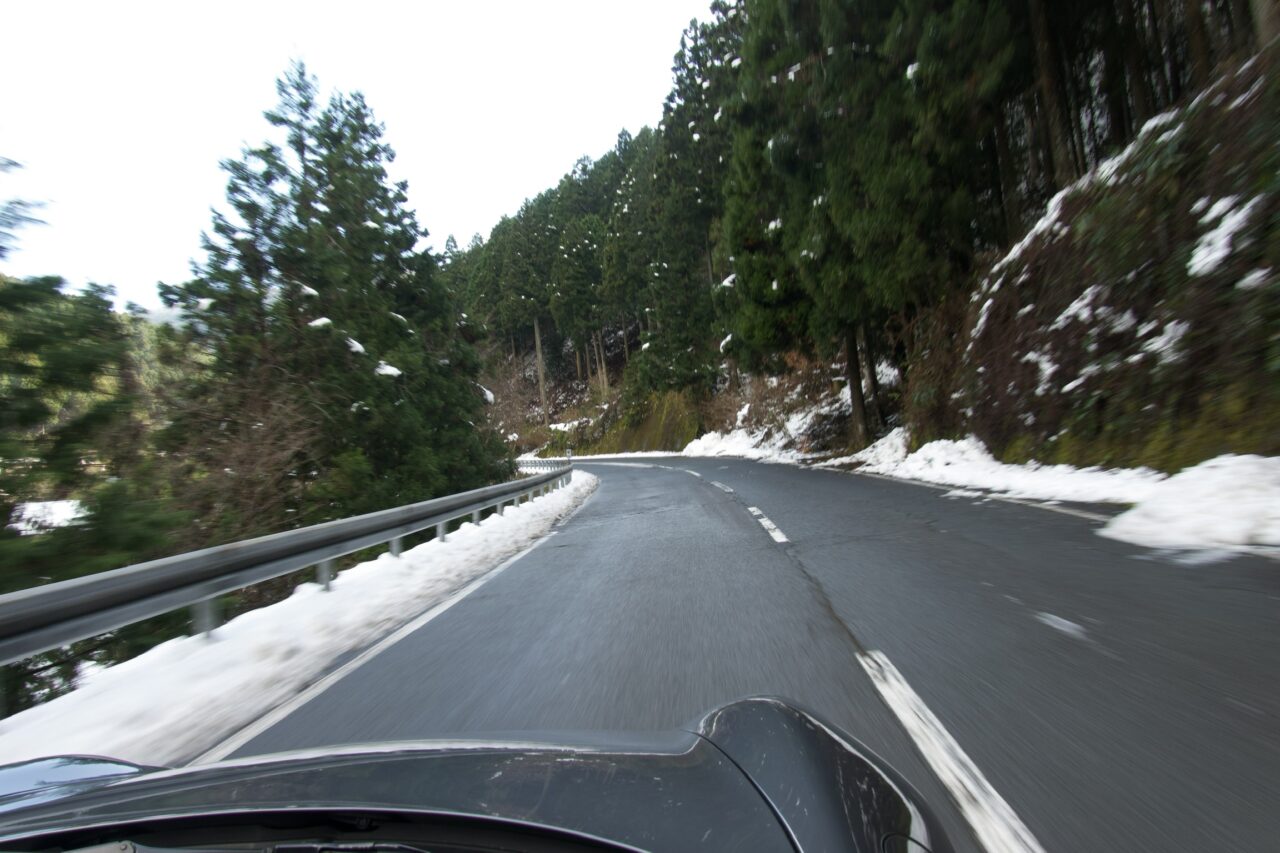
Snowy Winding Roads
Unable to complete the tour, I faced the New Year with some frustration. Just as I was planning another drive, news came of a major cold wave approaching.
In the Kansai region, snow began falling even in the plains from night. Checking the live camera of Royu, it was completely white with heavy snow. This looked promising! (laughs) So I got up early the next morning and drove the 911 before the snowplows cleared the roads.
The snow stopped the next day, leaving perfect conditions. The Royu Driveway was so white that even the center lines were invisible—a rare sight.
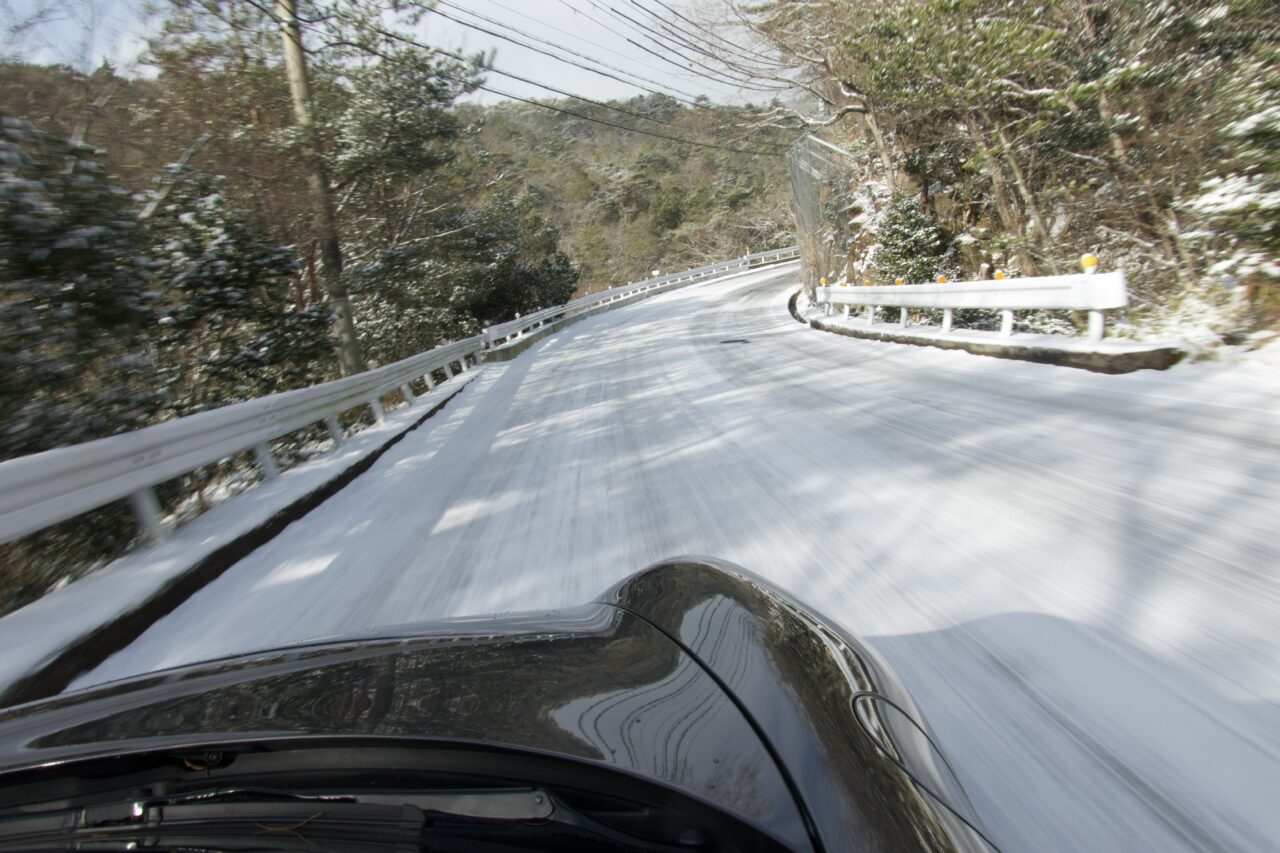
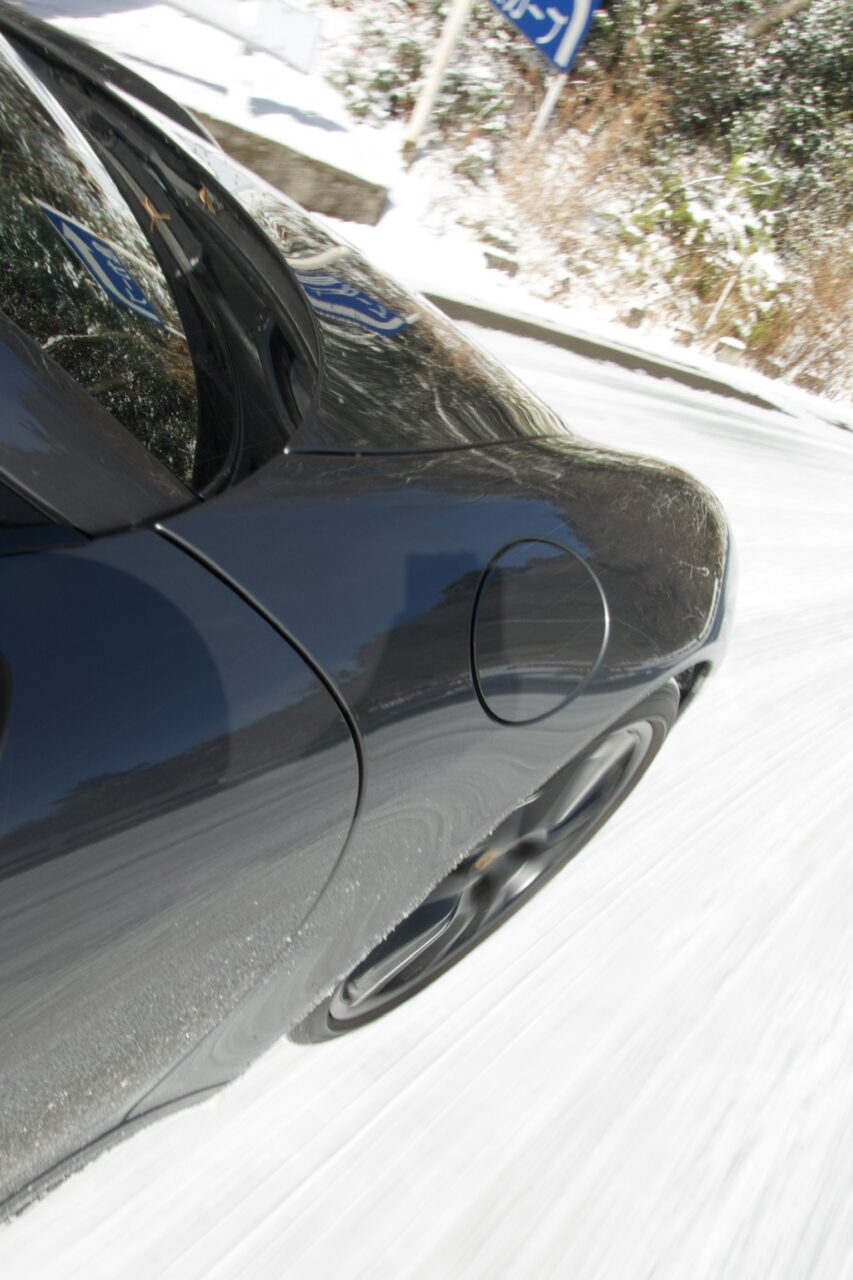
This time, I took it slow to carefully observe the behavior of the Carrera 4 GTS.
As snowplowing progresses, patches of snow and bare pavement become scattered, and ice patches increase, making grip uneven and driving trickier. But on roads not yet cleared, driving is very smooth.
When I pressed the accelerator deeply in 2nd gear, the car kicked up snow clouds and surged forward with powerful all-wheel-drive traction. Braking performance was also excellent. In curves, I downshifted to carefully transfer weight on entry, then accelerated out, steering the car cleanly through the bends.
Basically, the 911 has no problem on snowy flat or uphill roads. I tried various cornering styles on different curves, and it was never scary or unstable when driven normally.
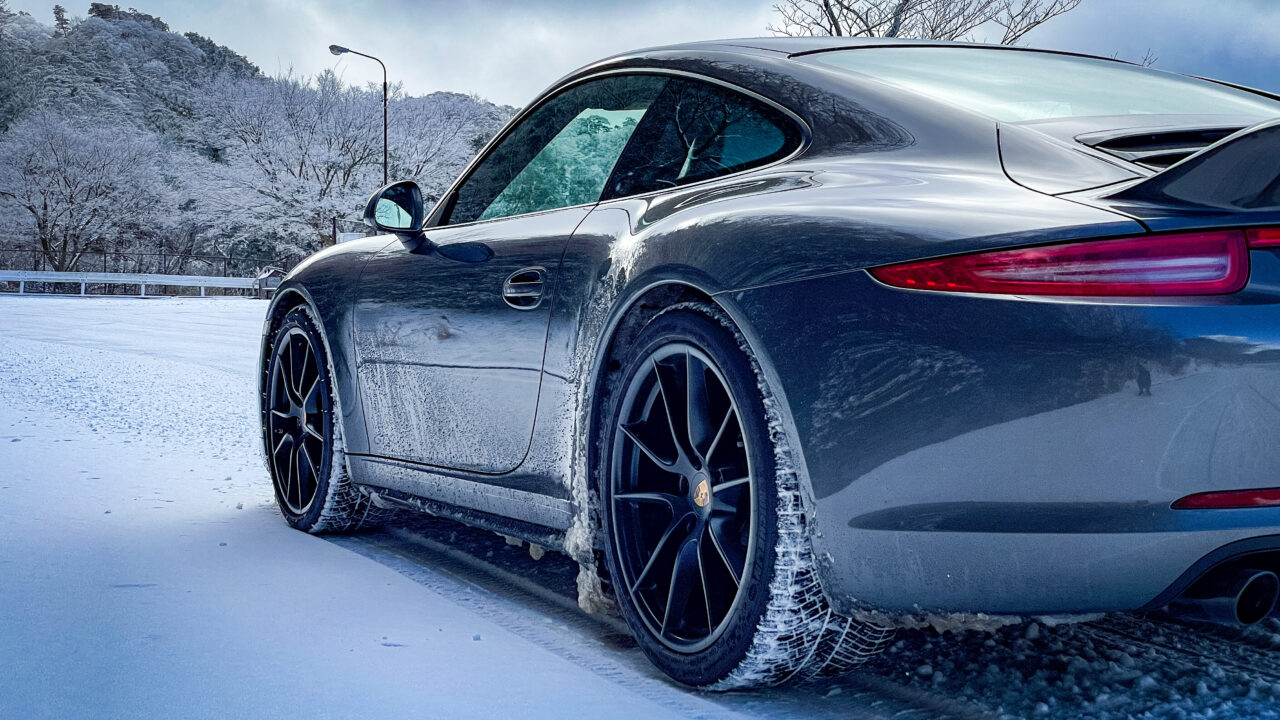
However, downhill curves require caution. Even the Carrera 4 GTS shows some negatives from its heavy rear. For example, on a slightly steep downhill curve, if you brake a little late and only start braking after entering the curve, the 911 will easily start to swing its rear out.
Of course, the PSM intervenes to keep control, so unless you’re going very fast, it won’t become uncontrollable. But there’s a brief moment when the rear steps out more than expected, causing oversteer and a slight scare. In such situations, it’s better to brake firmly on the straight before the curve, reduce speed, and enter the corner carefully.
After that, I continued to enjoy the snowy winding roads with care. Snowy roads are dangerous, but they’re also the best place to test a car’s performance and behavior. It’s important to deeply understand your 911 and be able to handle any situation safely, just in case.
They say you can’t truly understand a 911 unless you’ve owned it for at least five years, so I plan to keep driving mine in all kinds of conditions to learn even more.
このブログが気に入ったらフォローしてね!


Comment ( 0 )
Trackbacks are closed.
No comments yet.